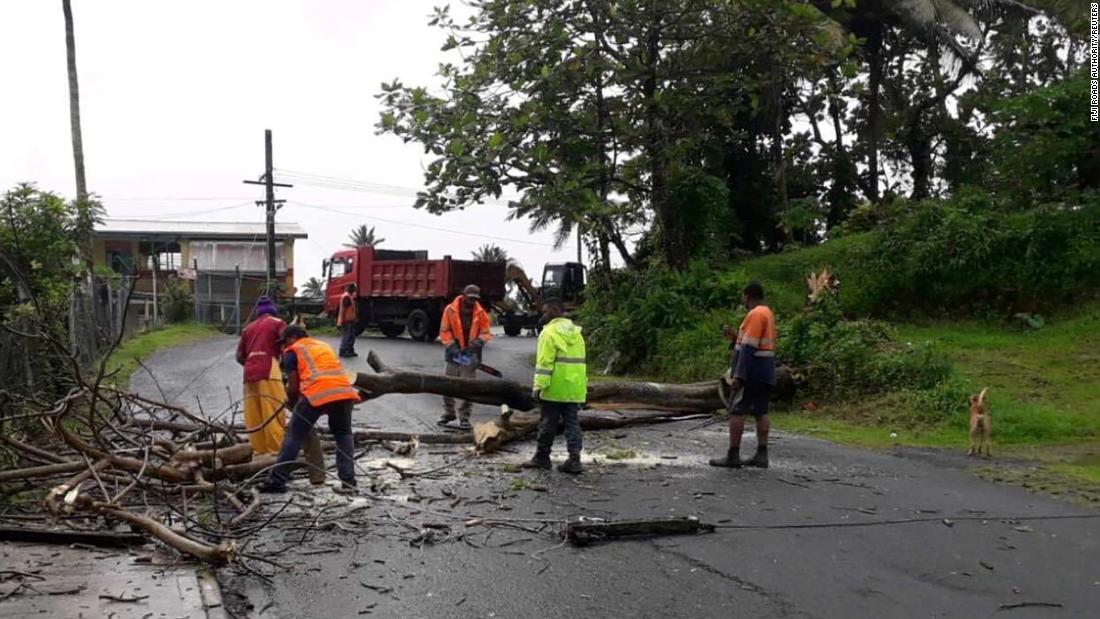
Two victims have been confirmed, according to the Fiji National Disaster Management Office. That number is expected to increase.
Cyclone Yasa, a top category 5 storm, made landfall over Bua province on the northern island of Vanua Levu on Thursday evening, with torrential rains, widespread flooding, and wind speeds of up to 285 kilometers per hour (177 miles per hour) across the archipelago.
Fiji had declared a state of natural disaster on Thursday, ordered its entire population of nearly 1 million to seek shelter and imposed a curfew.
The alarm was largely heeded, and as a result, humanitarian groups said it appeared that the initial impact of Cyclone Yasa was less than initially feared, although still extensive.
“We are deeply concerned about the safety of thousands of people affected by this monstrous storm,” Fiji’s Red Cross Director General Ilisapeci Rokotunidau said in a statement on Friday. “Initial reports from volunteers reveal the devastation in Bua, a province on the island of Vanua Levu. The coastal areas of many islands were affected by storm surges and flooding at the height of the storm.”
Images shared on social media showed roads blocked by landslides, floods and fallen trees. All roads in Rakiraki, a district on the main island of about 30,000 residents, have been flooded, Fiji’s Road Authority said.
“Communities need immediate assistance,” Shairana Ali, CEO of Save the Children Fiji, told CNN. “Some families have reported losing everything.”
Ali said some families lost all their food during the storm. “They had water and biscuits for breakfast,” she said. “Our main concern is to ensure that people, especially children, have access to good food and clean water.”
Authorities remain concerned about the heavy rains that bought Cyclone Yasa, although the storm has weakened in strength and is now only Category 2 as it moves south across the island chain.
Still, adverse weather has hampered relief groups efforts to send aid, with waves over 3 meters (10 feet) preventing ships from leaving Suva.
Strong cyclones have become increasingly common in the Pacific in recent years, something Fijian Prime Minister Frank Bainimarama and environmental organizations have attributed to climate change.
“This is not normal,” Bainimara tweeted on Thursday. “This is a climate emergency.”
Genevieve Jiva, the secretary of Fiji’s 350 environmental NGO, said in a statement Friday that the Fijians are “literally fighting for our survival.”
“Villages, houses and crops were destroyed so close to Christmas. Instead of celebrating, we are now focusing on rebuilding our lives,” she said. “That’s why I’m fighting for climate justice.”